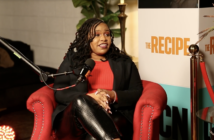“It’s a Black Thing, You Wouldn’t Understand” was one of the hottest-selling t-shirts with Black students on college campuses (HBCUs and PWIs) in the 1980s. The slogan symbolized… Wait a minute. Why am I trying to explain “It’s a Black Thing”? Because you either get it or you don’t.
And that was the point.
For Us By Us
There are realities, points of view, sayings, innuendos, historical references, inside jokes, food choices and non-choices, deep musical cuts that never made their way to “pop” airwaves, etc. that have spoken and/or continue to speak to some aspect of Black people, Black reality and some generational iteration of Black culture.
And they’re not meant to speak to all people. They weren’t fashioned to gain the attention of the white gaze or affirmation from paternalistic, myth-of-white-supremacy-believing minds. Those Black things that “you” wouldn’t understand were created FUBU – another Black thing you wouldn’t understand.
But with social media sharing all our business, and cultural colonizing at its highest heights (although it’s always been a thing), there are seemingly fewer and fewer “Black things.”
Why?
Because they become “Columbused” so quickly and/or so thoroughly (and commodified for white profits) you’d have to be well-versed in Black history or be in regular conversation with uncles and “grammamas” to know the African origins of so many things being passed off as OPP (if you need to ask, “you don’t know nann” about this Black thing).
Psyches Under Seige
But one thing that hasn’t been a Black thing since our sojourn in this Babylon is Black mental well-being.
Our psyches have been under non-stop attack since our enslavement began. So much so that many of us, we’ve been convinced that we have no history before being human trafficked to these American shores.
And the “niggerization” that we’ve experienced – the term created by Rev. Albert B. Cleage Jr., the Father of Black Liberation Theology, to describe the process used to operantly condition Black people into believing we are “less than” whites – has not only created a doo-loop of us Blackfolk consciously and/or subconsciously accepting that erroneous proposition, it has wreaked havoc on our mental health.
That “niggerization,” also known as “internalized oppression” (Dr. Naim Akbar) or “post-traumatic slavery syndrome” (Dr. Joy DeGruy), began with our initial capture hundreds of years ago, and continues to this day. It involves every aspect of life, every institution in society, and uses both torture and trinkets to keep us locked in its white supremacist matrix.
Call for a Counter-Culture
Cleage argued that the only way Blackfolk can be liberated and self-determining is to be “de-niggerized,” i.e. to engage in a process counter to that which convinced us to accept the myth of our declared inferiority. He was saying that we need to get our minds and spirits right. Or rather, aspiring toward optimal mental health and well-being, free from racist conditioning, needs to absolutely be a Black thing!
Holy books from multiple faith systems say the same thing, just with different words – “Man/Woman, know thyself.”
Black sheroes and heroes from countless generations have called for this. Djelis (griots) have passed down this lesson from the days of God’s firstborn. Hip-Hop suns and earths have spit this fire to burn away the miseducation we’ve been inundated with. They’ve all called us to dive deep into the knowledge of self as one critically important pathway to restoring our mental well-being.
Getting connected to a positive, racially affirming, culturally uplifting, spiritually empowering, intellectually stimulating, and historically enlightening community is another. Practicing various spiritual technologies and avenues of self-care (yoga, tai chi, meditation, movements, gardening, nature communing, etc.) are yet others.
And seeing a professional, if needed, is important if we’re going to fully take ownership and agency over the state of our mental states.
Moving forward, nurturing and protecting our mental wellness needs to sho-nuff, Mos Def be a Black thing that we all understand.



